READY TO GET STARTED?
REQUEST A FREE ESTIMATE
Fill out the form below or call (888) 466-7849 for a free, no-obligation estimate.
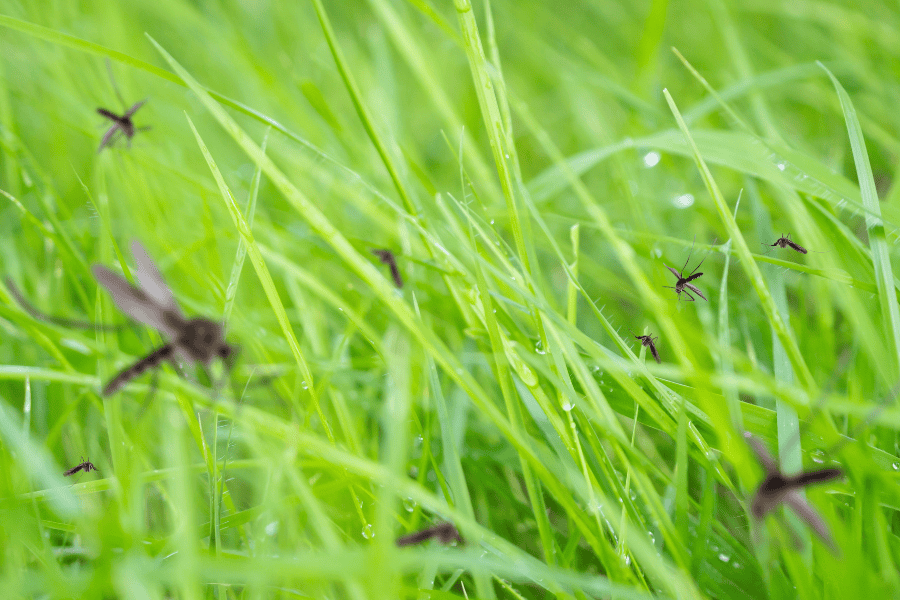
Living in Pompano Beach means enjoying sunny days and warm evenings, but it also means dealing with mosquitoes. If you’re still seeing these pesky pests buzzing around your property, you’re not alone! Even with efforts to control them, mosquitoes can be a consistent problem in South Florida. Let’s break down why you might still see them take over your yard and, more importantly, what you can do for mosquito reduction!
Mosquitoes thrive in warm, humid environments like Pompano. If you have even the smallest amounts of standing water or lush greenery, you may be giving them the perfect breeding ground. It’s easy to miss places where water collects, like in plant saucers, clogged gutters, or even toys left outside!
Another reason they stick around? Mosquitoes are excellent at hiding during the day and coming out in the evening when it cools down, making it seem like they’re never really gone.
The good news is you can take action now to help reduce the number of mosquitoes on your property.
Mosquito season in Pompano can feel never-ending, but with a few simple steps, you can regain control of your yard. By addressing the root causes and keeping up with treatments, you can reduce the number of mosquitoes buzzing around. If you’re still battling these pests, don’t hesitate to reach out to a local pest control company for help! These professionals will provide you with a free inspection and recommendations on the best treatment and prevention plan based on your mosquito situation.
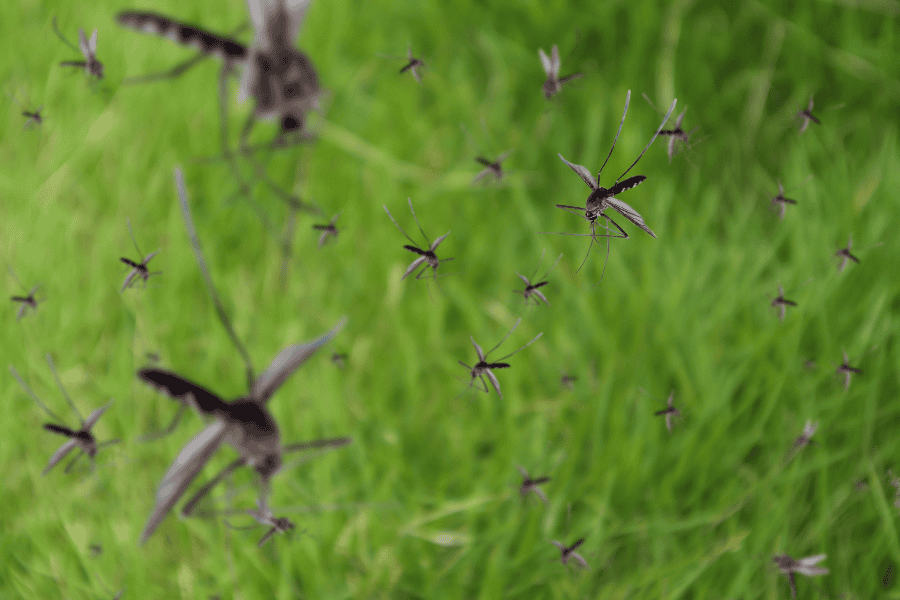
Mosquitoes can quickly turn a pleasant evening in your yard into an itchy nightmare! These pesky bugs thrive in Florida’s warm, humid climate, and can often be active almost year-round! One of the best ways you can avoid their infestation is placing easy, do-it-yourself preventative measures throughout your property to avoid them! Here are some of our favorite strategies to reduce mosquitoes around your Florida property.
Mosquitoes need standing water to breed and need only a cap-sized amount of water to do so. It’s important to eliminate any standing water throughout your home. Look to remove items from your yard that can hold water, including buckets, toys, unused flowerpots, pet bowls, etc. Likewise, fix any leaky pipes and clear your gutters of leaves and debris so they do not clog.
Your yard is the first line of defense against mosquitoes taking over your property. Mosquitoes will rest in dense vegetation, so it’s important to keep your lawn well-trimmed, bushes and shrubs pruned. Additionally, continue your lawn maintenance by mowing your grass frequently. If you store wood, look to place it at least 20 feet from your home and elevated off the ground.
Mosquitoes are small, fitting in the smallest hole or gap leading indoors. Ensure that all your windows and doors are fitted with screens to prevent them from entering the home. Likewise, for your outdoor areas, consider using mosquito nets or screens around patios and porches to avoid their infestation.
Do-it-yourself mosquito prevention can only go so far, especially if mosquitoes have infested in droves. If there has been an influx of mosquitoes on your property, consider calling a professional mosquito control company near you for help. These experts will provide you with a mosquito control plan, usually including a thorough inspection, mosquito reduction plan, treatment to eliminate adult and larva mosquitoes, and recommendations on preventing mosquitoes in the future.
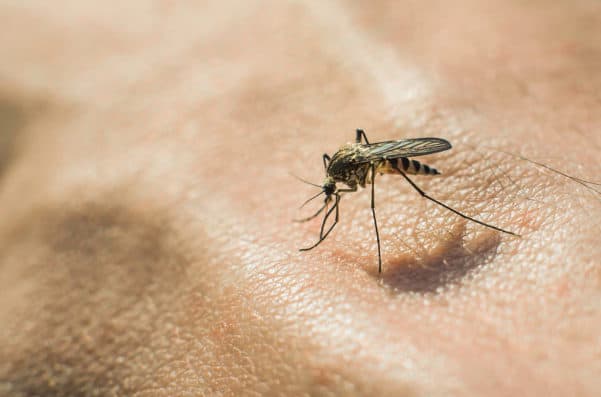
In some places, especially the southern United States, mosquito season can seem like it lasts forever – or at least for the majority of the year; and in some cases it actually does. Mosquitoes are most often associated with the hot summer months but the season actually begins earlier than that and can run through fall. Besides being annoying, mosquitoes can also pose serious health hazards to both humans and animals. Mosquitoes are known to transmit serious diseases like West Nile virus, Zika virus, chikungunya, and eastern equine encephalitis.
Because mosquito activity is primarily driven by temperature, mosquito seasons vary from region to region. Some species of mosquitoes hibernate during the winter and emerge when the weather warms up. Other species die off when cold weather arrives and their offspring hatch from previously laid eggs in the spring. Regardless of the species, most mosquito activity begins when temperatures consistently reach above 50 degrees Fahrenheit. As temperatures increase, so does mosquito activity, making peak mosquito season in the hot summer months. As the weather begins to cool down, so does mosquito activity. Those mosquito species that hibernate over winter will begin looking for their winter dwellings in hollow logs, abandoned animal burrows, and other places. Those mosquito species that don’t hibernate will begin dying off as temperatures drop below 50 degrees. Because of this, those places with warmer climates will have mosquito season begin earlier and last longer than those with cooler climates.
There are some do-it-yourself pest control steps that you can take to help minimize mosquitoes on and around your property. Try to implement these before mosquito season starts when temperatures are still below the 50 degree mark. Waiting until mosquito season means the breeding population will already be established and will be much harder to control.
Even with these proactive steps, mosquitoes can still be difficult to control. Consider investing in a professional mosquito control program that can reduce mosquitoes, help prevent mosquito bites, and limit your risk of mosquito-borne disease. A mosquito control program from a licensed pest control company can provide you with treatments throughout mosquito season.
How to Help Your Lawn During Late Summer
Are Millipedes Helpful or Harmful?
Pest Control for Basements and Attics
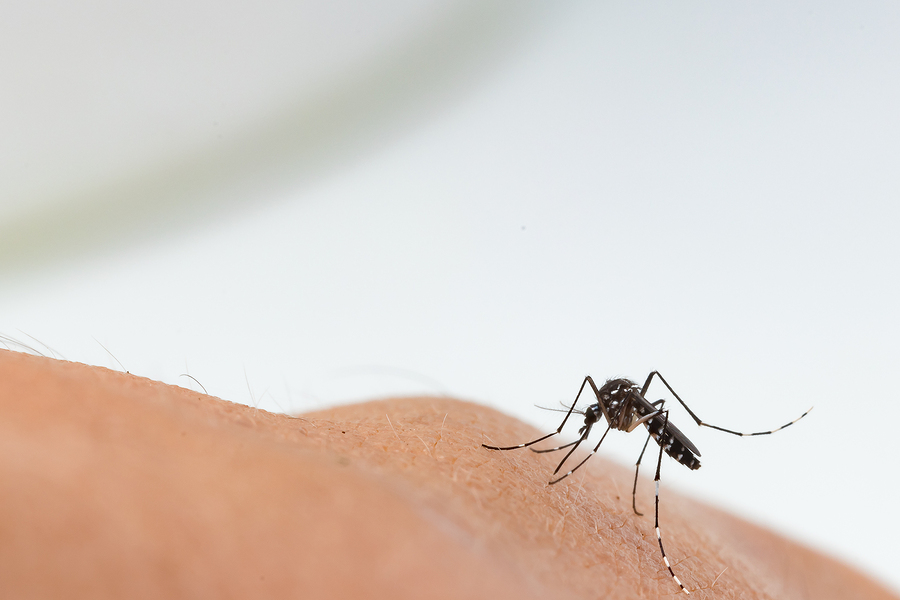
Mosquito season is in full swing, much to the dismay of those of us in the South. The humid weather stirs them up in a major way year after year.
Your mosquito service has already started up, but reduction services are just that, a service aimed at managing the occurrence of mosquitoes in the yard. Your Northwest technician utilizes an Intergrated Pest Management approach (IPM), which is customized just for you and your pest needs. This approach is aimed at mosquito prevention, mosquito reduction, and the elimination of the habitats that mosquitoes need to breed. Implementing a successful IPM strategy goes a long way with cutting down the mosquito population surrounding your home.
But, did you know that there are steps you can take to push your mosquito service to the next level?
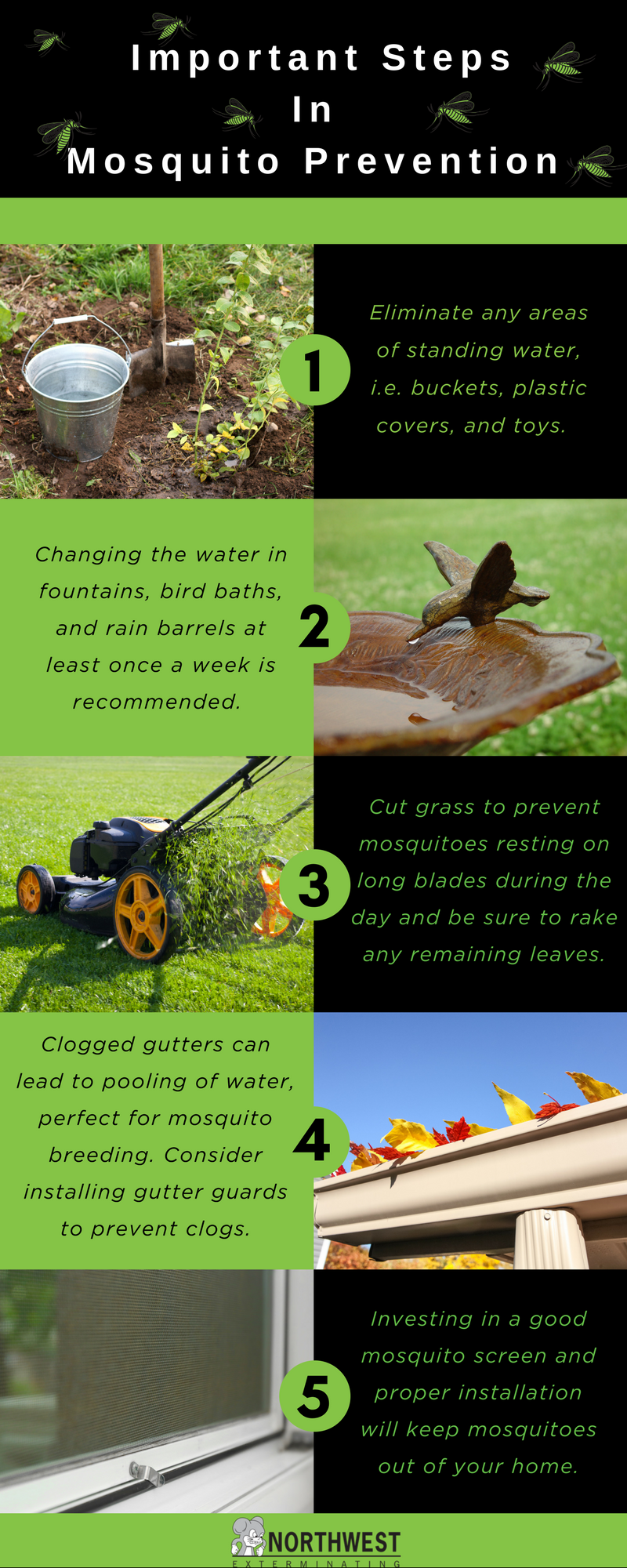
These extra steps will not only reduce the number of mosquitoes you encounter but will also help protect you and your family from mosquito bites and the diseases they can carry.
If you suspect you have a problem with mosquitoes in or around your home, contact a professional pest control company who can provide you with a thorough inspection and comprehensive mosquito treatment plan.
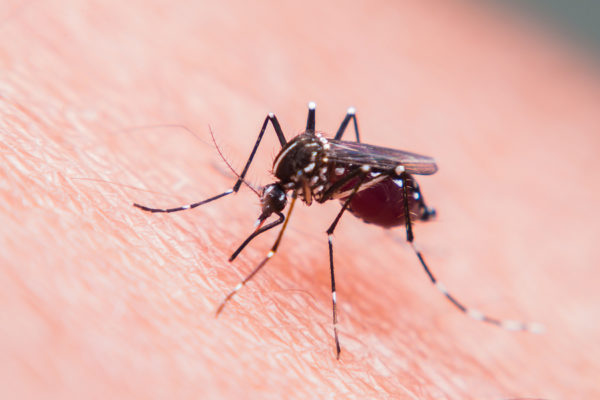
The best approach to controlling mosquitoes takes advantage of every life stage of a mosquito. This approach is known as an Integrated Pest Management approach (IPM). IPM employs a variety of different pest management techniques with an emphasis on pest prevention, pest reduction, and the elimination of habitats that can lead to pest infestations. A successful IPM strategy is made up of 4 different strategies:
If you suspect you have a problem with mosquitoes in or around your home, contact a professional pest control company who can provide you with a thorough inspection and comprehensive treatment plan.